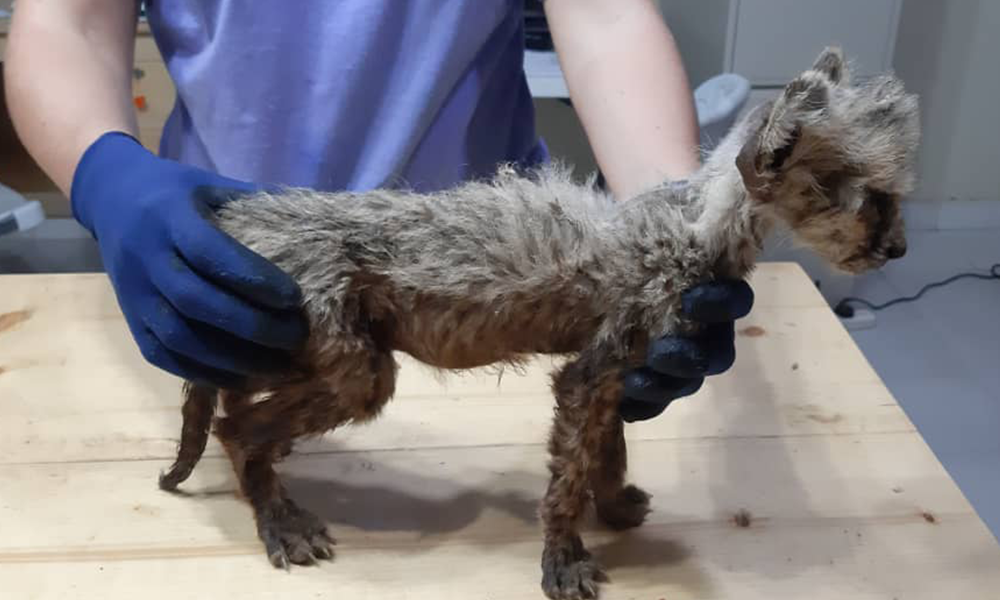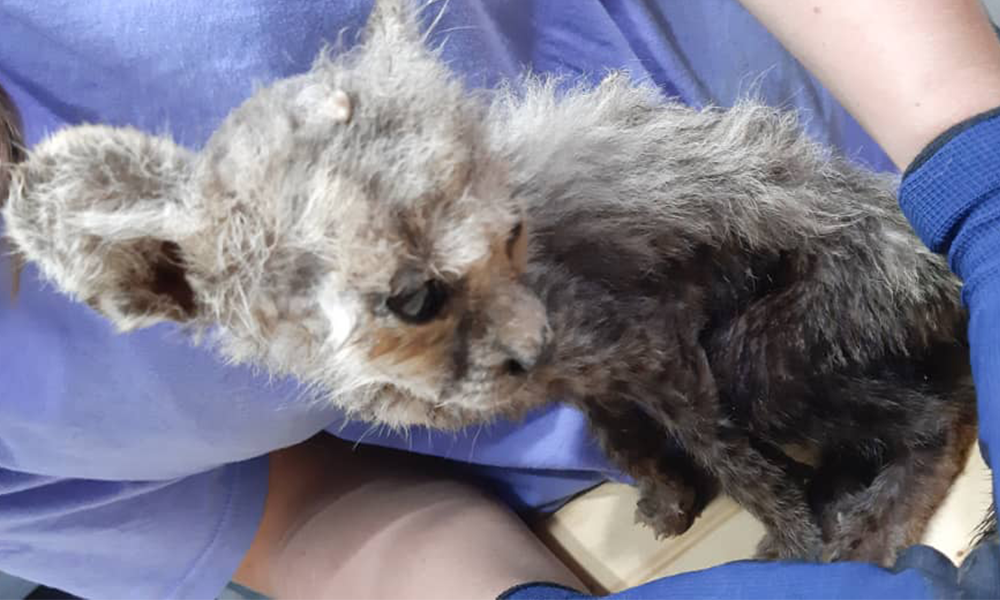Cheetah Conservation Fund Receives Emaciated Cubs Intercepted From Wildlife Traffickers By Somaliland Government in Record-Breaking Seizure
-

- by CCF Staff October 6, 2019
FOR IMMEDIATE RELEASE
CHEETAH CONSERVATION FUND RECEIVES EMACIATED CUBS INTERCEPTED FROM WILDLIFE TRAFFICKERS BY SOMALILAND GOVERNMENT IN RECORD-BREAKING SEIZURE
HARGEISA, Somaliland, Oct. 5, 2019 – Cheetah Conservation Fund (CCF) staff in Hargeisa are caring for the six surviving cubs from a seizure of 12 intercepted in waters off the Somaliland coast. The Somaliland Ministry of Environment and Rural Development (MoERD) coordinated the operation with the military, which yielded the largest number of cubs recovered in a single seizure since CCF began assisting the MoERD in 2011.
“The 12 cubs were recovered in very poor condition, extremely dehydrated and malnourished. Three died before arriving at the CCF Cheetah Safe House in Hargeisa, and three passed shortly after arrival. We are doing everything we can to help the six cubs get stronger, but their prognosis is not good,” said Dr. Laurie Marker, CCF’s Founder and Executive Director. “They cubs are about two months old, but they are so emaciated they appear to be just a few weeks.”
CCF has been operating its Cheetah Safe House since 2017, providing cubs recovered from the illegal wildlife trade with ongoing food, medication and care. Working in collaboration with Minister of Environment Shukri H. Ismail and her MoERD Wildlife Officers, once intercepted, trafficked cubs are taken to CCF’s facilities in the capital city, where they are given thorough health examinations and have medications administered by a professional and volunteer team of veterinarians and animal caregivers. CCF currently has 34 cubs in its facilities, including the six new arrivals.
Poached cubs originate mostly from Ethiopia, northern Kenya, Somalia and Somaliland, and they are smuggled off the African continent from beaches along the Gulf of Aden. They are destined for the Arabian Peninsula, mostly entering through Yemen. The demand for cubs is driven by the illegal pet trade, which is driven primarily by countries in the Middle East, where cheetahs have been traditionally considered a status symbol pet.


In November, CCF is assisting its partner agencies to bring together stakeholders from the Horn of Africa for a planning meeting in Hargeisa to combat cheetah trafficking. CCF will present its new project to build capacity in law enforcement agencies through trainings and the creation of a dedicated database accessible to all countries working together on the problem, LICIT (Legal Intelligence for Cheetah Illicit Trade).
Already Africa’s most vulnerable big cat, the illegal wildlife trade drives the cheetah even closer to extinction. CCF estimates 300 cubs are taken annually from small populations throughout the Horn that number only ~300-500 reproducing animals.
“With these numbers being so low, we must bring everyone to the table now, so we can move forward as a well-oiled machine. We need to combine our resources. We have zero time to waste if we hope to save cheetahs in the Horn of Africa,” said Dr. Marker.
Cheetah Conservation Fund and Illegal Wildlife Trade
Since 2005, Cheetah Conservation Fund (CCF) began tracking incidents cheetah trafficking and assisting authorities with confiscations whenever possible. To date, CCF has recorded hundreds of incidents involving more than 1,500 cheetahs or cheetah parts. Of these, less than 20% are known to have survived, while more than 30% were confirmed dead. Most of the trade in live cheetahs occurs between East Africa and the Arabian Peninsula, where cheetahs are kept as pets in some Gulf nations.
CCF is an international non-profit organization headquartered in Namibia with offices in Somaliland and operations in the United States, Canada, Australia, Italy, Belgium and the United Kingdom, CCF has a partner organizations in several other nations, including Germany, The Netherlands and Kenya. Founded in 1990, Cheetah Conservation Fund (CCF) is the global leader in research and conservation of cheetahs and dedicated to saving the cheetah in the wild. For more information, please visit www.cheetah.org.
MEDIA CONTACT: Susan Yannetti, susan@cheetah.org or 202.716.7756
Related Reading
-
December 6, 2024
CCF Continues to Expand its Paw Print in the Horn of Africa

